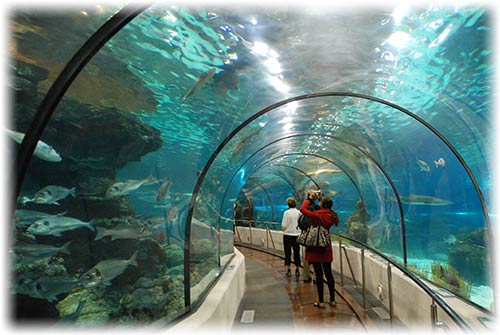pain
the feeling you have when part of your body hurts

Ronaldo felt a sharp pain in his leg.
Longman Dictionary of Contemporary English
I. pain1 S2 W2 /peɪn/ BrE AmE noun
[Word Family: adjective: ↑pained, ↑painful ≠ painless; verb: pain; noun: pain; adverb: painfully ≠ painlessly]
[Date: 1200-1300; Language: Old French; Origin: peine, from Latin poena, from Greek poine 'payment, punishment']
1. [uncountable and countable] the feeling you have when part of your body hurts:
The pain is getting worse.
pain in
She felt a sharp pain in her leg.
Greg was in a lot of pain. ⇨ growing pains(2)
2. [uncountable and countable] the feeling of unhappiness you have when you are sad, upset etc:
the pain and grief of bereavement
cause (somebody) pain/inflict pain on somebody
She hated to say the words, for fear of causing pain.
3. be a pain (in the neck) (also be a pain in the ass/arse/backside/butt not polite) spoken to be very annoying:
There were times when Joe could be a real pain in the neck.
It’s a pain, having to go upstairs to make the coffee every time.
4. take/go to (great) pains to do something (also take pains with/over something) to make a special effort to do something:
He’s taken great pains to improve his image.
5. be at pains to do something to be especially careful to make sure people understand what you are saying or what you plan to do:
Roy was at pains to point out that English was the only exam he’d ever failed.
6. for your pains as a reward for something you worked to achieve – used especially when this is disappointing:
I fetched the file, and all I got for my pains was a dirty look from Simon.
7. no pain, no gain used to say that you can only achieve something, for example become fitter, by suffering or working hard
8. on/under pain of death at the risk of being killed as punishment, if you do not obey:
Communist activity was prohibited on pain of death.
• • •
COLLOCATIONS
■ adjectives
▪ bad Later that evening, the pain was really bad.
▪ terrible/awful I woke up with a terrible pain in my side.
▪ severe/intense Ever since the accident, Mike’s suffered from severe back pain.
▪ excruciating (=very severe) The pain in my eye was excruciating.
▪ a sharp pain (=short but severe) She felt a sharp pain in the back of her throat.
▪ a slight pain (=not severe) I’ve got a slight pain in my side.
▪ a dull pain (=a slight but continuous pain) There was a dull pain in his lower jaw.
▪ a nagging pain (=felt all the time) Rob felt fine, apart from a nagging pain in his left wrist.
▪ chronic pain (=pain that you suffer from for long periods of time) Many of the elderly patients suffer chronic pain.
▪ a shooting pain (=a severe pain that goes from one part of your body to another) The shooting pains in her arms and legs slowly began to die away.
▪ a searing pain (=very severe, as if you have been burnt) His elbow struck the side of the table, sending a searing pain through his arm.
▪ a stabbing pain (=sharp and sudden) Marcus heard a shot and felt a stabbing pain at the back of his ankle.
▪ a throbbing pain (=a pain that gets stronger and then weaker, in a steady continuous beat) I’ve still got this throbbing pain in my leg.
▪ back/chest/stomach etc pain Many people suffer from back pain.
▪ abdominal pain Several of the hotel’s guests had persistent abdominal pain and diarrhoea.
▪ physical pain He couldn’t stand physical pain.
▪ labour pains British English, labor pains American English (=felt by a woman at the time she is having a baby) Becky was at work when labour pains began.
■ verbs
▪ have a pain I’ve got a terrible pain in my stomach.
▪ feel pain The dentist told me that I wouldn’t feel any pain.
▪ be in pain Despite being in great pain, he managed to call for help.
▪ suffer (from) pain She suffers from chronic pain in her legs.
▪ inflict pain The guards enjoyed inflicting pain on them.
▪ relieve/ease pain (also alleviate pain formal) (=make it less severe) Exercise can help to relieve lower back pain.
▪ experience pain formal Animals caught in the trap experience great pain before they die.
▪ complain of pain (=say that you have a pain in a part of your body) After we finished our run, Tom complained of pains in his chest.
▪ the pain gets worse If the pain gets any worse, see your doctor.
▪ the pain goes away (also the pain subsides formal) (=becomes less severe) He lay still until the pain had subsided to a dull ache.
▪ the pain comes and goes (=keeps starting and stopping) The pain comes and goes but it’s never too severe.
■ pain + NOUN
▪ pain relief (=a drug or treatment that makes pain less severe) These drugs offer effective pain relief for the very sick.
▪ sb’s pain threshold (=their ability to bear pain) Everyone has a different pain threshold.
■ phrases
▪ aches and pains Everyone has a few aches and pains when they get older.
■ COMMON ERRORS
► Do not say 'big pain'. Say terrible pain or severe pain.
• • •
THESAURUS
▪ pain noun [uncountable and countable] the feeling when part of your body hurts: A broken leg can cause a lot of pain. | He felt a sharp pain in his chest.
▪ ache noun [uncountable and countable] a continuous pain, especially one that is not very bad. Most commonly used in compounds such as headache, toothache, and backache: I felt an ache in my back after decorating all day. | Driving gives me a headache. | I’ve got stomach ache. | Do you have earache?
▪ twinge noun [countable] a sudden slight pain that comes and then disappears quickly: When I bent down I felt a twinge in my back.
▪ discomfort noun [uncountable] formal an uncomfortable feeling in your body, or a slight pain: The procedure takes five minutes and only causes slight discomfort.
▪ agony noun [uncountable] a feeling of great pain, or a situation in which you feel a lot of pain: the agony of childbirth | I was in agony by the time I got to the hospital. | It was agony (=very painful)getting up out of bed.
▪ suffering noun [uncountable] continuous physical or mental pain, which makes someone very unhappy: I just wanted someone to put an end to my suffering. | the suffering of the earthquake victims
II. pain2 BrE AmE verb [transitive]
[Word Family: adjective: ↑pained, ↑painful ≠ ↑painless; verb: ↑pain; noun: ↑pain; adverb: ↑painfully ≠ ↑painlessly]
it pains somebody to do something formal used to say that it is very difficult and upsetting for someone to have to do something
Oxford Advanced Learner's Dictionary
pain [pain pains pained paining] noun, verb [peɪn] [peɪn]
noun
see also pains
1. uncountable, countable the feelings that you have in your body when you have been hurt or when you are ill/sick
• a cry of pain
• She was clearly in a lot of pain.
• He felt a sharp pain in his knee.
• patients suffering from acute back pain
• stomach/chest pains
• You get more aches and pains as you get older.
• The booklet contains information on pain relief during labour.
• This cream should help to relieve the pain.
see also growing pains
2. uncountable, countable mental or emotional suffering
• the pain of separation
• I never meant to cause her pain.
• the pleasures and pains of growing old
• a life full of pain and suffering
3. countable (informal) a person or thing that is very annoying
• She can be a real pain when she's in a bad mood.
• It's a pain having to go all that way for just one meeting.
Word Origin:
Middle English (in the sense ‘suffering inflicted as punishment for an offence’): from Old French peine, from Latin poena ‘penalty’, later ‘pain’.
Thesaurus:
pain noun
1. U, C
• He felt a sharp pain in his knee.
ache • • suffering • • agony • |formal discomfort •
in pain/agony/discomfort
(a) back/stomach pain/ache
cause pain/suffering/discomfort
relieve/ease the pain/suffering/agony/discomfort
2. U
• The pain of separation remained intense.
suffering • • distress • • misery • • agony • |informal hurt • • torture • |formal anguish •
in pain/distress/misery/agony/anguish
physical/emotional pain/suffering/distress/agony/hurt/torture/anguish
endure the pain/suffering/distress/misery/agony/torture
cause (sb) pain/suffering/distress/misery/agony/hurt/anguish
Pain, distress or suffering? These are all words for a feeling of great unhappiness. Distress can also be a feeling of worry. Pain is often used when the hurt is individual and the cause more personal, such as the death of a loved one. Suffering often refers to sth on a large scale that affects many people, such as a war or natural disaster.
Example Bank:
• A sharp pain hit the middle of my chest and I collapsed.
• A sharp pain shot up his leg.
• Can you feel any pain?
• Doctors used to treat back pain with rest.
• Ellen saw the pain etched on his face when he mentioned his ex-wife's name.
• Eucalyptus oil is good for easing muscular aches and pains.
• For a few moments she forgot the pain he had caused her.
• Has the pain gone yet?
• He tried to conceal his pain from her.
• He was obviously in a great deal of pain.
• He was taken to hospital suffering from severe abdominal pain.
• He went to the doctor with chest pains.
• His back gives him a lot of pain.
• His face was contorted with pain as he crossed the finish line.
• I could sense her pain and put my arm around her.
• I don't want to relive the pain of losing her.
• I have a very low threshold for pain.
• If the pain persists, see your doctor.
• It took him several years to get over the pain of losing his job.
• It was lovely to have someone there to share both the pain and the joy.
• It's wrong to inflict pain on any animal.
• Marathon runners are used to going through pain.
• Nothing could heal the pain of her son's death.
• Pain wracked her frail body once more.
• She had a burning pain in one eye.
• She knew the pain of separation.
• She's been in bed with back pain.
• The government has to persuade the people that the economic reforms are worth the pain.
• The pains began shortly after she started work as a gardener.
• The treatments helped manage his pain.
• These pills should ease the pain.
• Through her drug addiction she had inflicted a lot of pain on the family.
• We hoped to spare her the pain of having to meet her attacker.
• Your doctor should be able to do something for the pain.
• a pain in her side
• the phantom pain of a lost limb
• It's a pain having to go all that way for just one meeting.
• She had never meant to cause him any pain.
• She was clearly in a lot of pain.
• That man's a pain in the neck!
• The pain of separation remained intense.
• This cream should help to relieve the pain.
Idioms: no pain, no gain ▪ on pain of something ▪ pain in the neck
verb (not used in the progressive tenses) (formal)
to cause sb pain or make them unhappy
Syn: hurt
• ~ sb She was deeply pained by the accusation.
• (old use) The wound still pained him occasionally.
• it pains sb to do sth It pains me to see you like this.
• it pains sb that… It pained him that she would not acknowledge him.
Verb forms:
Word Origin:
Middle English (in the sense ‘suffering inflicted as punishment for an offence’): from Old French peine, from Latin poena ‘penalty’, later ‘pain’.
See also: pain in the arse ▪ pain in the ass
Cambridge Advanced Learner's Dictionary
pain /peɪn/
noun [C or U]
1 a feeling of physical suffering caused by injury or illness:
Her symptoms included abdominal pain and vomiting.
Are you in (= suffering from) pain?
She was in constant pain.
These tablets should help to ease the pain.
I felt a sharp pain in my foot.
He's been suffering various aches and pains for years.
2 emotional or mental suffering:
It's a film about the pains and pleasures of parenthood.
The parents are still in great pain over the death of their child.
pain /peɪn/
verb [T] FORMAL
If something pains you, it causes you to feel sad and upset:
[+ to infinitive] It pains me to see animals being mistreated.
pains /peɪnz/
plural noun
1 be at pains to do sth to make a lot of effort to do something:
She is at pains to point out how much work she has done.
2 go to/take great pains to do sth to make a lot of effort to do something:
I went to great pains to select the best staff available.
pained /peɪnd/
adjective
If you look or sound pained, you show that you are upset or offended:
a pained expression
painful /ˈpeɪn.fəl/
adjective
1 causing emotional or physical pain:
The old photograph brought back painful memories.
A painful injury forced her to withdraw from the game.
2 If something is painful to watch or listen to, it is so bad that it makes you feel embarrassed:
It was painful to listen to his pathetic excuses.
painfully /ˈpeɪn.fəl.i/
adverb
1 in a way that causes pain:
Without surgery, this animal will die slowly and painfully.
2 used to emphasize a quality, action or situation that is unpleasant or not desirable:
I am painfully aware that I have made mistakes.
It was a painfully slow journey.
painless /ˈpeɪn.ləs/
adjective
1 causing no physical pain:
a painless medical procedure
2 describes something that causes no problems:
a painless solution to a problem
painlessly /ˈpeɪn.lə.sli/
adverb
The laser beam heals the eye painlessly.
Collins COBUILD Advanced Learner’s English Dictionary
[pe͟ɪn]
♦♦
pains, pained
1) N-VAR Pain is the feeling of great discomfort you have, for example when you have been hurt or when you are ill.
...back pain.
...a bone disease that caused excruciating pain...
To help ease the pain, heat can be applied to the area with a hot water bottle...
I felt a sharp pain in my lower back...
The illness began with a nagging pain.
...chest pains.
●
PHRASE: PHR after v If you are in pain, you feel pain in a part of your body, because you are injured or ill.
She was writhing in pain, bathed in perspiration.
2) N-UNCOUNT Pain is the feeling of unhappiness that you have when something unpleasant or upsetting happens.
...grey eyes that seemed filled with pain.
Syn:
anguish
3) VERB: no cont If a fact or idea pains you, it makes you feel upset and disappointed.
[V n] This public acknowledgment of Ted's disability pained my mother...
[it V n to-inf] It pains me to think of you struggling all alone. [Also it V n that]
4) PHRASE: pain inflects, v-link PHR, PHR to-inf (disapproval) In informal English, if you call someone or something a pain or a pain in the neck, you mean that they are very annoying or irritating. Expressions such as a pain in the arse and a pain in the backside in British English, or a pain in the ass and a pain in the butt in American English, are also used, but most people consider them offensive. [INFORMAL]
5) PHRASE: V inflects, usu PHR to-inf If someone is at pains to do something, they are very eager and anxious to do it, especially because they want to avoid a difficult situation.
Mobil is at pains to point out that the chances of an explosion at the site are remote.
Syn:
anxious
6) PHRASE: PHR with cl You say that something was all you got for your pains when you are mentioning the disappointing result of situation into which you put a lot of work or effort.
All Corfield got for his pains was a bullet in the head...
The Professor lavished his learning on the young visitor but gained little gratitude for his pains.
7) PHR-PREP If someone is ordered not to do something on pain of or under pain of death, imprisonment, or arrest, they will be killed, put in prison, or arrested if they do it.
We were forbidden, under pain of imprisonment, to use our native language.
8) PHRASE: V inflects, usu PHR to-inf If you take pains to do something or go to great pains to do something, you try hard to do it, because you think it is important to do it.
Social workers went to great pains to acknowledge men's domestic rights...
I had taken great pains with my appearance.
Syn:
go to great lengths










